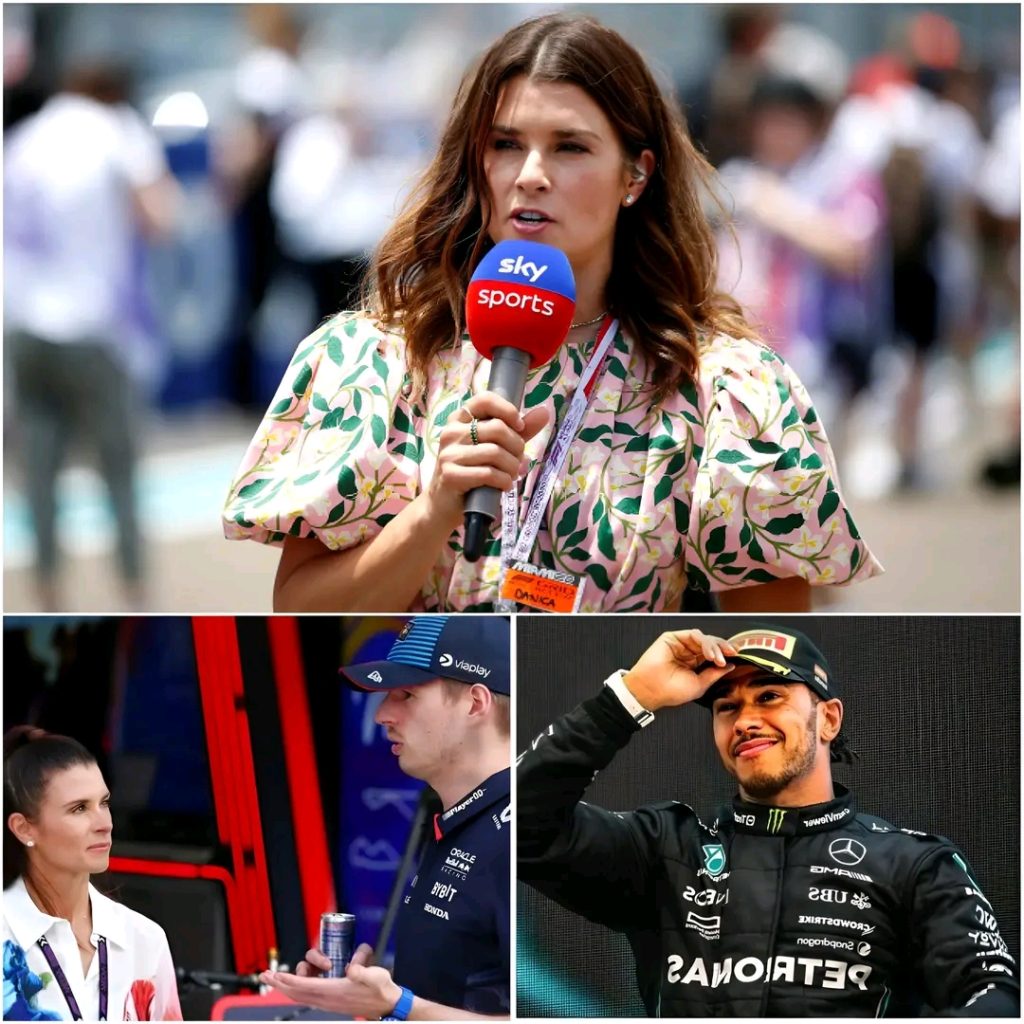SHOCKING NEWS: Danica Patrick Accuses FIA of Sabotaging Red Bull and Max Verstappen While Favoring British Drivers….. Read more

Danica Patrick Accuses FIA of Bias Against Red Bull and Max Verstappen, Favoring British Drivers
Former IndyCar and NASCAR driver Danica Patrick has made waves in the motorsport community with her recent accusations against the FIA (Fédération Internationale de l’Automobile). Patrick claims that the governing body has shown favoritism toward British drivers while deliberately undermining Red Bull Racing and its star driver, Max Verstappen. These bold allegations have ignited widespread debates about potential bias in Formula 1 and raised serious questions about the fairness of race officiating.
During a podcast appearance, Patrick voiced her concerns about what she sees as an unfair treatment of Red Bull and Verstappen, particularly in contrast to British drivers. “There seems to be a clear bias toward British drivers, and it’s affecting how races are officiated,” she stated. “Red Bull and Max Verstappen have been scrutinized and penalized in ways that other teams and drivers haven’t. It feels like there’s a coordinated effort to bring them down.”
Patrick’s comments follow a series of controversial incidents throughout the current season, where Verstappen and his team have faced penalties and decisions from the race stewards that have sparked outrage among fans. These moments have led to growing conversations within the F1 community about whether the FIA’s actions suggest an inconsistency in their enforcement of rules or even an underlying bias.
Allegations of favoritism in motorsport are not new. Throughout the history of Formula 1, drivers and teams have occasionally raised concerns about the impartiality of the FIA’s decisions. Given that British teams like Mercedes and McLaren have long held dominant positions in the sport, suspicions about favoritism toward British drivers have surfaced before. Patrick’s claims feed into this historical narrative, questioning whether the FIA’s decisions may indeed be influenced by national affiliations.
Max Verstappen’s meteoric rise to the top of Formula 1 has been both a source of excitement and division. Having secured multiple world championships and set numerous records, Verstappen has emerged as one of the sport’s most formidable talents. However, his rivalry with British drivers, particularly seven-time world champion Lewis Hamilton, has only heightened the tensions surrounding these accusations. The fierce competition between Verstappen and Hamilton, coupled with recent FIA decisions that some view as questionable, has contributed to the polarized opinions about whether the playing field is truly level.
As of now, the FIA has not issued an official response to Patrick’s accusations. Nonetheless, insiders within the organization maintain that all decisions made during races are based strictly on established rules and protocols, without regard to the nationality of drivers. They assert that the FIA’s commitment to fairness and integrity remains steadfast, and their actions are governed by the principles of impartiality.
Red Bull Racing has also refrained from making a direct statement regarding Patrick’s claims. However, team principal Christian Horner has expressed concerns in the past over penalties and rulings that have negatively impacted the team’s performance. In a recent press conference, Horner said, “We believe in fair competition and trust the FIA to make the right calls.” While Horner stopped short of endorsing Patrick’s allegations, his remarks suggest that Red Bull shares some of the concerns surrounding officiating.
Patrick’s comments have sparked widespread discussions on social media, with many fans of Verstappen and Red Bull echoing her sentiments. Supporters argue that her accusations warrant a deeper investigation into the FIA’s decision-making process, particularly when it comes to race penalties. On the other hand, critics of Patrick’s stance suggest that her claims might be an attempt to delegitimize the achievements of British drivers and cast doubt on the competitiveness of Formula 1 as a whole.
The debate surrounding Patrick’s remarks raises broader questions about the culture of Formula 1 and how perceptions of bias can shape the sport’s image. Some observers have pointed out that even the suggestion of favoritism could damage the integrity of the sport, calling on the FIA to ensure that transparency and fairness are upheld. Others believe that bias, whether real or perceived, will always be a part of competitive sports and that teams must learn to navigate these dynamics.
As the Formula 1 season continues, the pressure remains high for all teams and drivers. Danica Patrick’s accusations against the FIA have cast a new spotlight on the governing body’s role in maintaining fairness and ensuring that no team or driver is unfairly targeted or advantaged. As these discussions unfold, fans and analysts will be watching closely to see how the FIA responds and whether this debate will influence future decisions in the sport. The integrity of Formula 1 hangs in the balance, with many hoping that fairness will prevail in the high-stakes world of motorsport.








